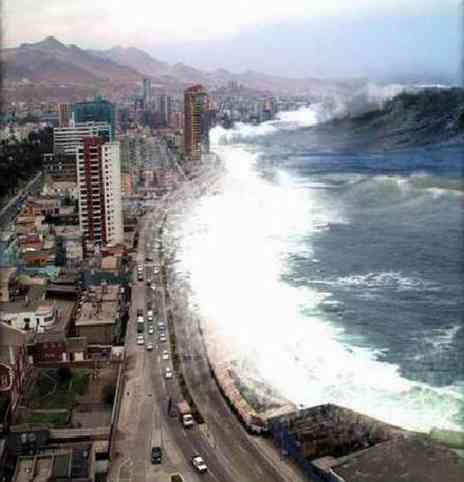
Scientists Gather For Climate Conference AMSTERDAM, Netherlands, Apr. 2, 2007
(AP) Climate change could threaten the lives of hundreds of millions of people in the decades to come, according to a draft of a major report being released this week. Changing weather patterns have already reshaped the world, but they will accelerate in the decades to come, says the report by the Intergovernmental Panel on Climate Change, a United Nations network of 2,000 scientists.
Severe drought and devastating floods are among some of the threats to mankind unless action is taken to curb global warming. "We are going into a realm the Earth has not seen for a very long time ... over the past 800,000 years," said Camille Parmesan, a University of Texas biologist who reviewed the upcoming report. About 285 delegates from 124 countries are meeting in Brussels with more than 50 of the scientists who compiled the report. As governments will use the report to set policy, the final wording must be adopted by consensus among the diplomats, with the approval of the scientists. The report will be the second volume of a four-volume authoritative assessment of Earth's climate released this year.
The first in February updated the science of climate change, concluding with near certainty that global warming is caused by human behavior.
This week's closed-door talks in Belgium are likely to focus on predictions of how many people will be at high risk and whether such specific weather events like Hurricane Katrina should be attributed to global warming.
"Do you use examples? And do you use ones that are relatively positive or highly negative?" said Rik Leemans, a co-author from Wageningen University in the Netherlands. "You can tone it down or strengthen it by including examples, and that's always an issue in these discussions." Even the most optimistic forecasts say the climate will continue to change and the planet will be irrevocably damaged.
The question is, how much? In the absence of action to curb emissions of carbon dioxide and other heat-trapping gases, the future looks bleak. The scientists predict that within 25 years, hunger from crop failure and death from diarrhea caused by drinking foul water will threaten countries where water has become scarce. Later in the century, warmer seas will likely destroy coral reefs and the fish that feed off them, and may lead to the poisoning of shellfish. Small islands will probably be submerged, and tens of millions of people in coastal cities and river basins will likely be affected by flooding from sea surges, the draft report says. Many more species will vanish. Beetles and other pests are expected to infest forests even more, with forest and wild fires more frequent and widespread. But parts of North America and northern Europe will see some benefits, at least in the short term, from longer growing seasons and milder winters. The IPCC's work will be presented at a summit in June of leaders from the world's richest countries. Global warming is caused in part by industrialized countries whose vehicles and factories contribute heavily to production of heat-trapping greenhouse gases. The last such assessment of climate change was in 2001. Since then, studies have tracked specific shifts on the ground to changing temperatures and weather patterns. "Many natural systems on all continents and in some oceans are being affected by regional climate changes, particularly temperature increases," the draft reads.
Parmesan said storms and floods have become more severe in some places, coastlines have eroded and deserts have expanded. Diseases common in the tropics have spread. In the northern hemisphere, spring is coming an average two weeks earlier, disrupting bird migrations and causing flowers and trees to bloom too early. At least 70 species have become extinct so far because of global warming, Parmesan said in a telephone conference with reporters. But scintists say people can avoid the worst-case scenarios. A third report due out in May will outline strategies for slowing global warming. "These are projections that many of us believe don't have to be the future; many of these can be avoided," said James J. McCarthy, a Harvard University oceanographer who was a main author of the 2001 assessment. He said he is optimistic the worst won't happen "because we can't be that stupid."
___ Associated Press Science Writer Seth Borenstein contributed to this report from Washington.

No comments:
Post a Comment